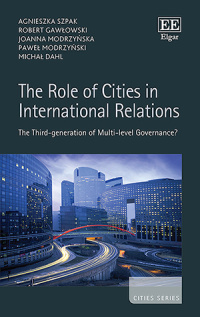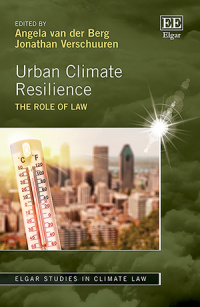Hardback
Handbook on Planning and Power
Drawing on research from diverse thinkers in urban planning and the built environment, this Handbook articulates the cutting edge of contemporary understandings about power and its impact on planning. It identifies the current state of knowledge about planning and power, as well as emerging trajectories within this field of research.
More Information
Contributors
More Information
Drawing on research from diverse thinkers in urban planning and the built environment, this Handbook articulates the cutting edge of contemporary understandings about power and its impact on planning. It identifies the current state of knowledge about planning and power, as well as emerging trajectories within this field of research.
This comprehensive Handbook examines power relations in late capitalism and provides normative suggestions on how power might be utilised in planning. Chapters analyse the work of fundamental theoretical thinkers, including Marx, Foucault, Deleuze, and Lacan, as well as the history and practice of abolitionist housing justice in the United States, feminist and queer perspectives on planning and power, and the emerging autonomous Smart City. It demonstrates the effects of power within planning and the ways in which individuals, communities, and organisations are shaped and impacted positively and negatively by its practices.
With case studies from a range of different geopolitical regions, this stimulating Handbook will be essential reading for students and scholars of architecture, community development, geography, urban and regional planning, urban design, and urban studies. It will also be beneficial for practitioners of planning and the built environment.
This comprehensive Handbook examines power relations in late capitalism and provides normative suggestions on how power might be utilised in planning. Chapters analyse the work of fundamental theoretical thinkers, including Marx, Foucault, Deleuze, and Lacan, as well as the history and practice of abolitionist housing justice in the United States, feminist and queer perspectives on planning and power, and the emerging autonomous Smart City. It demonstrates the effects of power within planning and the ways in which individuals, communities, and organisations are shaped and impacted positively and negatively by its practices.
With case studies from a range of different geopolitical regions, this stimulating Handbook will be essential reading for students and scholars of architecture, community development, geography, urban and regional planning, urban design, and urban studies. It will also be beneficial for practitioners of planning and the built environment.
Contributors
Contributors include: Ernest R. Alexander, Leonora C. Angeles, Ozlem Atalay, Elham Bahmanteymouri, Elena Besussi, Raoul Beunen, Camillo Boano, Petra Doan, Martijn Duineveld, James Duminy, Mona Fawaz, Linda Fox-Rogers, Kristina Grange, Jean Hillier, Andy Inch, Crystal Legacy, Jaime Lopez, Ernesto López-Morales, Hilary Malson, Raine Mäntysalo, Marlyana Azyyati Marzukhi, Katie McClymont, Mohsen Mohammadzadeh, Enda Murphy, Lina Olsson, John Pløger, Libby Porter, Nikolai Roskamm, Yvonne Rydin, Lisa Schweitzer, Bjørn Sletto, Eric Sheppard, Kristof Van Assche, Chuan Wang, Vanessa Watson, Tanja Winkler





